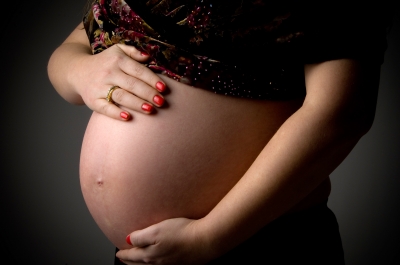 Pregnancy is supposed to be a very joyous life event. In fact, most pregnant mom’s are excited to meet the baby that has been moving, kicking, and growing in her belly over the last few months. Meeting your baby for the first time is an overwhelming and happy time for most parents. Once a mom gives birth, her body will undergo some very drastic changes emotionally, physically, and hormonal changes after the baby is born. All these changes at once can cause a new or experienced mom to feel overwhelmed, exhausted, irritable, sleep deprived, teary eyed, and possible changes in eating habits.
Pregnancy is supposed to be a very joyous life event. In fact, most pregnant mom’s are excited to meet the baby that has been moving, kicking, and growing in her belly over the last few months. Meeting your baby for the first time is an overwhelming and happy time for most parents. Once a mom gives birth, her body will undergo some very drastic changes emotionally, physically, and hormonal changes after the baby is born. All these changes at once can cause a new or experienced mom to feel overwhelmed, exhausted, irritable, sleep deprived, teary eyed, and possible changes in eating habits.
Disclosure: This post is for informational purposes only and shouldn’t replace appropriate medical care. If you feel any of the symptoms listed below please contact your doctor, health care professional, psychologist, or psychiatrist.
Caring For a Newborn Can Overwhelm New and Experienced Parents – Team Work is Important
Being a new parent is not an easy job but it is very rewarding and worth it. It is natural for moms, possibly even dads, to feel anxious or somewhat “blue” when caring for a newborn. A newborn needs round the clock care. As a parent, you need to remember to take care of yourself so that you can adequately take care of your newborn. If possible, parents should take care of their baby in shifts so that both mom and dad have time for a shower, have the opportunity to eat a good meal, or to catch up on sleep. As your baby gets older, things will improve and things will get easier. The first two months are probably the hardest part of being a new parent.
New Mom’s Often Suffer From The “Baby Blues”
Many mom’s have heard of the term “baby blues” and they hope that they don’t suffer from this mild form of depression after having a baby. After all, having a baby is supposed to be a joyous occasion. As you begin transitioning into your new role as a mother, caretaker, and wife, it is very important that you take care of yourself too. A newborn can be demanding, overwhelming, and exhausting. If you find yourself feeling “blue”, make sure that you aren’t sleep deprived. If you are suffering from “baby blues”, know that you aren’t alone and try to relax. These feelings should go away without any treatment;however, please make sure that you have a support system that can give you reassurance or encouragement along the way. If your feelings don’t go away or have you symptoms for longer than two weeks, you need to talk to a health care professional to determine if you have more than just the “baby blues”.

Comments
5 responses to “Can You Tell the Difference Between Baby Blues and Postpartum Depression?”
Thanks for this very informative post! First-time and expecting moms gotta read this! 🙂
It is excellent info. Just thinking you might have depression would stress you out too. It’s such a tough job that Moms do!:)
Change is so overwhelming: marriage, new job, new house, new baby or even sending that baby off to college. This is a wonderfully sensitive post. I hope all your readers, whether new moms or experienced, will remember to treat others with just a bit more kindness and a lot less judgment.
This was a great post. So many people don’t want to talk about depression, or are ashamed of it. Thanks for your sensitive post.
It is important to know the difference although being down or depressed isn’t anything to ignore totally. Very informative!